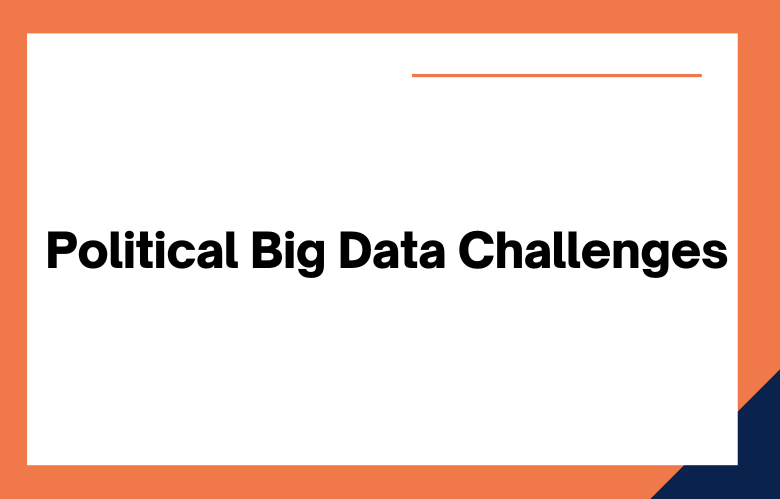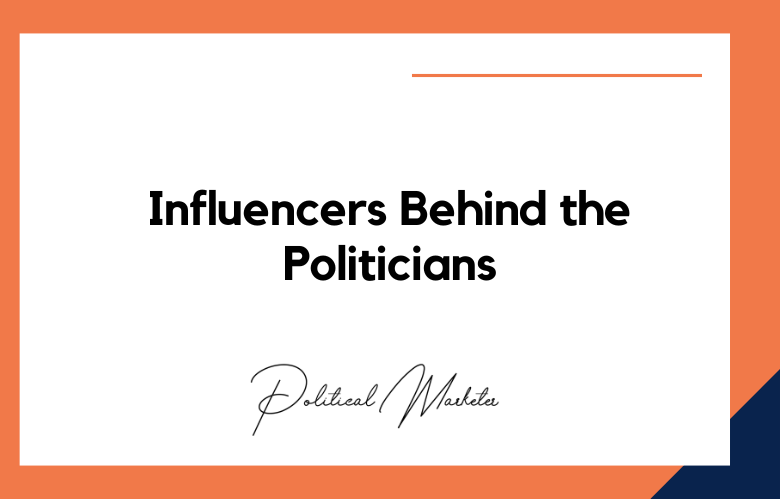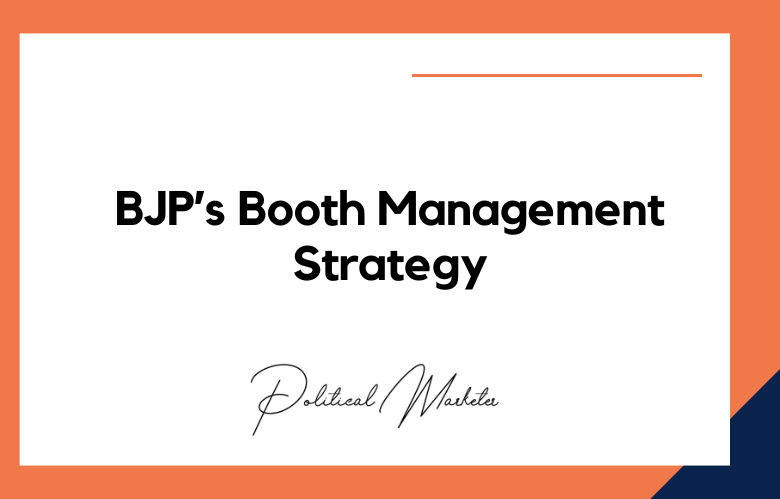Campaigns increasingly turn to big data to help them win elections, but they often face challenges in getting the most out of this data. This post will examine some of the most common challenges with big political data and how campaigns can overcome them.
The world of big data is constantly growing, and with it comes new opportunities for businesses and organizations of all sizes. Big data shows unique challenges and options for reaching voters for political campaigns.
This blog post will explore the most common challenges movements face when using big data. We’ll also discuss some potential solutions to these challenges.
The world of big data is constantly growing, and with it comes new opportunities for businesses and organizations of all sizes. Big data shows unique challenges and options for reaching voters for political campaigns.
This blog post will explore the most common challenges campaigns face when using big data. We’ll also discuss some potential solutions to these challenges.
Political big data can potentially revolutionize campaigns but can also be challenging to use effectively. The blog shows some of the most common challenges with big political data and how to overcome them.
What is Political Big Data?
Political Big Data is a term used to describe the process of collecting and analyzing data that makes decisions about politics. The data comes from various sources, including media outlets, social media, and government organizations.
By using this data, analysts and policymakers can gain insights into the workings of the political system and make better-informed decisions.
Political Big Data can track, study, and influence political behavior. It includes voter records, campaign finance filings, social media data, and poll results.
By understanding and analyzing this data, political campaigns can better target their audience, tailor their messages, and ultimately win elections.
Political Big Data is data that track, studies, and influence political behavior. It includes voter records, campaign finance filings, social media data, and poll results. By understanding and analyzing this data, political campaigns can better target their audience, tailor their messages, and ultimately win elections.
Most Common Challenges with Political Big Data
- The data is often incomplete.
- The data can be misleading because it’s not always accurate
- The data manipulates people
- The data uses for personal gain rather than the public good
- The data can be stolen or hacked
- The sheer volume of data can be overwhelming and difficult to process
- It cannot be easy to find the right data sets for your Analysis
- The data is often not current or up-to-date
- It can be hard to get timely insights from big political data
- The study can be expensive and time-consuming
- There is a lack of qualified personnel who can work with big data
- Poor data quality
- Volume and variety of data
- Time-consuming manual processes
- Lack of expertise and tools
- Data accuracy and completeness
- Identifying the correct data to analyze
- Lack of standardization in big political data
- The Need for human interpretation and Analysis
- Political Bias in data collection and Analysis
- Collecting data from different sources
- Cleaning and preparing the data for Analysis
- Analyzing the data to find trends
- Interpreting the findings and drawing conclusions
- Communicating the results to others
- The sheer volume of data can be overwhelming and difficult to process
- There is no one-size-fits-all solution for analyzing and understanding big political data
- It cannot be easy to find the suitable data sources
- There is a lack of qualified analysts who can understand and work with big data
- Political big data is often siloed, making it difficult to share and combine information from different sources
- The technology needed to analyze big political data is expensive and requires specialized skills
- It can be challenging to keep up with the latest trends in extensive political data analysis
- The sheer volume of data can be overwhelming and difficult to analyze
- The data is often spread out across different sources, making it hard to compile
- The data is often contradictory, making it hard to come to any conclusions
- It can be challenging to find the right people to analyze the data
- The data is constantly changing, so it’s hard to keep track of what’s important
- The volume of data is too large to analyze
- The data is not timely enough to be useful
- The data is not accurate enough to be reliable
- There are no standard formats for sharing the data
- The data is difficult to access and use
- The amount of data available is overwhelming and difficult to process
- Much of the data is unstructured and incomplete
- The data is often biased or inaccurate
- It can be hard to find the right data sets for your Analysis
- There is no single source of big political data
- The data can be expensive to access and use
- The volume of data is too large to be processed and analyzed promptly
- The variety of data sources makes it difficult to combine data from different sources
- The integrity of the data is often questioned because it collects from unofficial channels
- The timeliness of the data is questionable because it is often outdated by the time it is released
- The usefulness of the data is limited because it does not take into contextual account factors
- The sheer volume of data available can be overwhelming and challenging to navigate
- Most political big data is unstructured, making it hard to analyze
- Much of the data is self-reported or comes from unofficial sources
- The use of algorithms can often lead to biased results
- It’s often difficult to determine the veracity of big political data
- There is a lack of standardization when it comes to datasets
- Big data analytics can be expensive and time-consuming
- The results of big data analytics are not always accurate
Conclusion
Despite these challenges, big political data is a powerful tool for understanding and predicting voter behavior.
Contact us if you want help leveraging this data to improve your campaigns or like to learn more about how it works. We offer big political data consulting to help organizations unlock the power of this valuable resource.
Most Common Challenges with Political Big Data: FAQs
What Is Political Big Data?
Political big data refers to the vast volume of data generated through political campaigns, voter interactions, social media, polling, and public databases that are analyzed to understand and influence political behavior.
Why Is Big Data Important in Politics?
Big data enables political parties and strategists to segment voters, personalize outreach, predict voting behavior, and optimize campaign strategies based on real-time feedback.
What Are the Key Sources of Political Big Data?
Common sources include voter databases, social media platforms, surveys, digital ad performance metrics, news media, and mobile location data.
What Challenges Are Faced in Collecting Political Big Data?
Challenges include data fragmentation, privacy regulations, inconsistent data formats, lack of centralized access, and difficulties in verifying accuracy.
How Does Data Fragmentation Affect Political Campaigns?
Fragmented data from different platforms and sources makes it difficult to build a unified voter profile, resulting in incomplete or inconsistent targeting.
What Are the Privacy Concerns with Political Big Data?
There are significant concerns over how voter data is collected, shared, and used, especially with regard to consent, surveillance, and potential misuse.
Is Political Big Data Always Reliable?
No. Data can be biased, incomplete, or outdated, which may lead to incorrect assumptions or flawed predictive models.
What Role Does AI Play in Political Big Data?
AI helps in analyzing large datasets, sentiment analysis, chatbot communication, voter segmentation, and micro-targeting based on behavioral data.
What Are the Risks of Over-Reliance on Data in Politics?
Over-reliance may lead to ignoring ground realities, human intuition, and offline sentiments, possibly resulting in campaign misfires or blind spots.
Can Political Big Data Influence Election Outcomes?
Yes, if used effectively, it can shape narratives, personalize voter outreach, and boost turnout, but it can also misfire if based on flawed data.
How Do Social Media Platforms Contribute to Political Big Data?
They provide behavioral insights, engagement metrics, trending issues, and real-time voter sentiments that campaigns use for targeting.
What Is Data Bias in Political Contexts?
Data bias occurs when datasets reflect skewed demographics or opinions, leading to unbalanced or unfair campaign strategies.
How Can Political Campaigns Ensure Data Accuracy?
By triangulating data from multiple sources, conducting frequent audits, cleaning data, and applying statistical validation methods.
What Are the Legal Challenges Associated with Political Big Data?
Laws like GDPR, CCPA, and India’s DPDP Act regulate data collection, consent, cross-border sharing, and campaign-related data usage.
Why Is Voter Trust at Risk with Political Big Data?
Voters may feel manipulated or spied upon if their personal data is used without transparency, leading to erosion of trust in political systems.
What Are Ethical Issues in Political Data Usage?
Concerns include surveillance, psychological manipulation, misinformation, and targeting based on sensitive attributes like caste or religion.
How Does Disinformation Relate to Big Data?
Big data can be used to amplify false narratives or micro-target misinformation, especially when algorithms prioritize virality over accuracy.
What Is the Role of Data Literacy in Political Campaigns?
Campaign teams must understand how to interpret data critically, avoid false patterns, and ensure ethical and strategic use.
How Can Political Big Data Be Used Responsibly?
By implementing ethical frameworks, ensuring informed consent, being transparent with voters, and prioritizing democratic integrity over short-term gains.
What Is the Future of Political Big Data?
It includes deeper AI integration, stricter regulations, demand for transparency, and possibly a shift toward decentralized or privacy-preserving data models.
One way to get in touch is by filling out our online form on this site or give us a call at
+91 9848321284. Let’s work together today!











